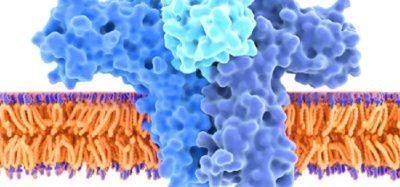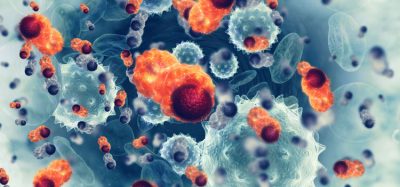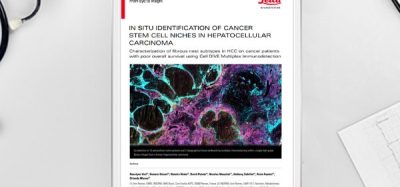Medicinal cannabis is safe and effective — it’s time to reboot research
Posted: 27 March 2018 | Dr Zara Kassam (Drug Target Review) | 1 comment
Researchers claim that medicinal cannabis is safe and effective for pain relief, and are calling for the treatment to be properly established in our modern medical arsenal…

Researchers claim that medicinal cannabis is safe and effective in pain relief, and are calling for the treatment to be properly established in our modern medical arsenal.
Cannabis has been used for centuries in pain relief, as a sleep aid and for many other purposes, yet there is little evidence on its safety and effectiveness. This is in part due to relatively recent legal restrictions on its use, which have hampered research efforts and resulted in doctors having little to no understanding of its use.
However, there has been an explosion in the number of studies published since 2012. The review provides two major studies on the use of cannabis in cancer patients and the elderly, as well as a comprehensive overview of the evidence, regulations, ethics and practical use. The authors and editors call for more research to improve the evidence base.
In a study led by Professor Victor Novack, A Professor at Ben-Gurion University of the Negev in Israel a team of researchers analysed data collected during the medicinal cannabis treatment of 2,970 cancer patients between 2015 and 2017. The two main problems patients were hoping to overcome were sleep problems and pain, and cannabis has been shown to be effective in alleviating both 95.9 percent of the patients reported an improvement in their condition.
Our ultimate aim should be to scientifically establish the actual place of medical cannabis-derived products in the modern medical arsenal
The same team also analysed the effectiveness of medical cannabis in elderly patients who were being treated in 2015-2017 for a variety of issues, including pain and cancer. The researchers conclude in their paper: “Our study finds that the therapeutic use of cannabis is safe and efficacious in the elderly population. Cannabis use may decrease the use of other prescription medicines, including opioids. Gathering more evidence-based data, including data from double-blind randomised controlled trials, in this special population is imperative.”
In a review Professor Donald Abrams at University of California San Francisco Ward covers 10,000 scientific abstracts, “concluded that there was conclusive or substantial evidence that cannabis or cannabinoids are effective for the treatment of pain in adults; chemotherapy-induced nausea and vomiting and spasticity associated with multiple sclerosis.”
Yet the report also highlighted the barriers to research in the US, which may explain the lack of strong evidence for the therapeutic use of cannabis. This dearth of research has also led to numerous ethical issues in prescribing cannabis, not least because many doctors do not understand the treatment enough to advise dosage and use. An article by researchers at the University of British Columbia, Canada and International Cannabis and Cannabinoids Institute, Prague, Czech Republic provides practical guidance for doctors, with data on cannabis pharmacology.
“We feel it is absolutely imperative to not only present the current state of affairs but also propose the development of the scientific research program within the paradigm of evidence-based medicine,” said Prof Novack, “Our ultimate aim should be to scientifically establish the actual place of medical cannabis-derived products in the modern medical arsenal.”
The review has been published in a new special issue of the European Journal of Internal Medicine.
Related topics
Drug Development, Drug Targets, Regenerative Medicine, Research & Development
Related organisations
University of California San Francisco Ward, University of the Negev
Related people
Professor Donald Abrams, Professor Victor Novack








We need more research urgently. There is so much promise shown from both pre-clinical and anecdotal reports, now bolstered by limited human research which has been very difficult to get approved. We must quickly remove legal barriers and provide research support that is not only tied to profit-incentive as conventional means of drug research are not as forthcoming in this field. If the research is done showing which agonists, inverse agonists, et cetera are effective in each condition or subtype of disease, then people will be able to access from home-grown sources, in many cases. This should not hamper research, but it does. So we must move forward with a bigger goal than just financial profit. Please remove the research barriers. I am an oncology nurse and seeing many patients who appear to be getting profound benefits — pediatric B-cell leukemia, graft versus host disease, Neuroendocrine or small cell cancers in many locations, HER2+ breast cancer and more. And, of course with pretty much *any* autoimmune diseases (probably because of the influence on T1/T2 axis, including Th17. Thank you!